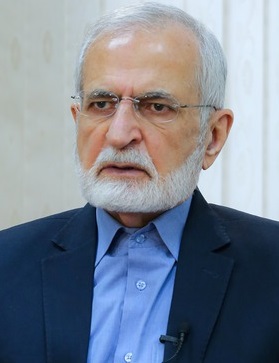Iran Open to Indirect Talks Amid Tensions with U.S.
Amid escalating tensions, Kamal Kharrazi, an adviser to Iran's supreme leader, announced Tehran's readiness for indirect negotiations with the U.S. Despite rejecting Trump's demands, Iran aims to evaluate opportunities and risks in its diplomatic approach following the U.S. exit from the 2015 nuclear deal.

- Country:
- United Arab Emirates
In a surprising diplomatic move, Kamal Kharrazi, adviser to Iran's supreme leader, revealed Tehran's willingness to engage in indirect talks with the United States. This comes despite Iran's firm rejection of previous U.S. demands and warnings from President Donald Trump, which were called deceptive by Supreme Leader Ayatollah Ali Khamenei.
Kharrazi emphasized that while Iran has kept some communication doors open, any negotiations must involve a thorough evaluation of the stakes, posing certain conditions before making decisions. This statement follows Iran's contemplation on responding to Trump's contrasting threats and potential opportunities.
Since Trump's 2018 withdrawal from the 2015 nuclear agreement and the reimposition of extensive sanctions, Iran has significantly intensified its uranium enrichment efforts, raising concerns among Western powers. These developments have led to accusations of Iran pursuing nuclear weapons capabilities, a claim Tehran vehemently denies, asserting its nuclear ambitions are purely for civilian energy.
(With inputs from agencies.)
ALSO READ
Trump's Deadline: Iran Nuclear Deal Tensions Rise
Ukrainian President Volodymyr Zelenskyy says he plans to speak with US President Donald Trump on Wednesday, reports AP. NPK NPK
Trump's Diplomatic Outreach: Navigating the Iran Nuclear Deal
Iran's Diplomatic Counter: Responding to Trump's Nuclear Deal Proposal
Trump's Ultimatum: Iran Faces Bombing or Tariffs Over Nuclear Deal










